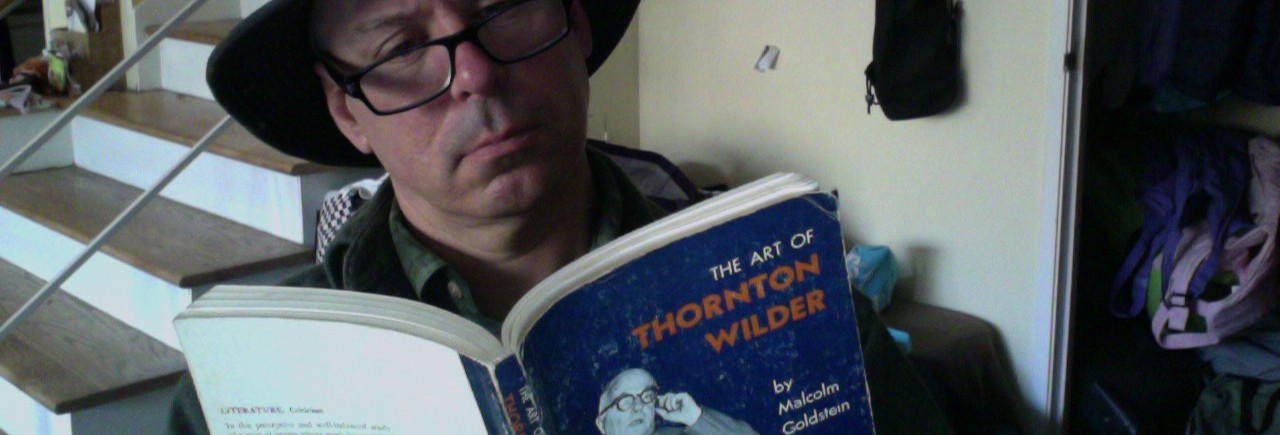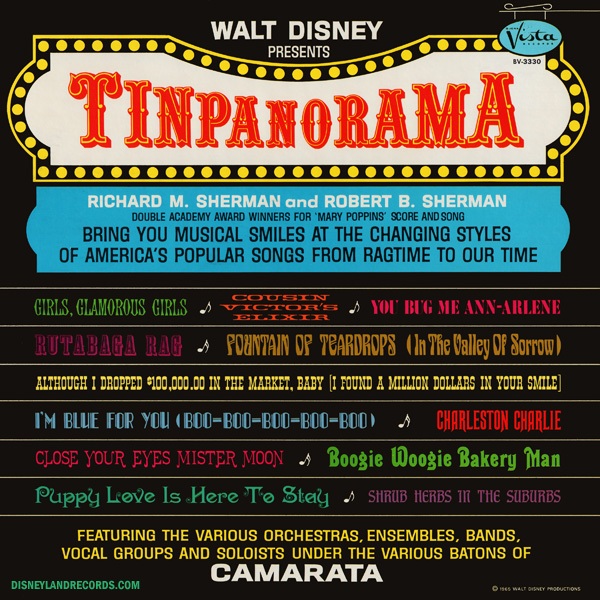For theatergoers of a certain age (I’m in my 50s), the Sherman Brothers were the musical theater greats who got away. They wrote cohesive multi-song scores for entertainments based on great books. But they did for the movies, not for the legit stage. Their best-known theater works were the World War II themed musicals Victory Canteen and Over Here. Many of us held high hopes for Busker Alley, which starred Tommy Tune and had a big-deal national tour in 1995 that never yielded a Broadway opening.
Today, everyone recognizes Mary Poppins, Chitty Chitty Bang Bang and now The Jungle Book as stage shows as well as movies. The Sherman Brothers are now certified musical theater composers. Just took a while.
Jungle Book is currently playing at the Huntington Theater in Boston, where the run’s been extended into mid-October. It premiered in August at the Goodman Theater in Chicago. Mary Zimmerman of Metamorphosis fame directed. The Music Director, Doug Peck, is known to Connecticut audiences for the scaled-down versions of Carousel and Man of La Mancha that Chicago’s Court Theater brought to the Long Wharf in 2007 and 2008.
The Jungle Book uses Sherman Brothers material written for the movie, including some that was cut from the finished film, such as “Baloo’s Blues.” It’s a special show for Disney fans of a certain age. The Jungle Book was one of the first Disney cartoon features which used recongnizable celebrity voices, and the ones the company chose span an extraordinary period of pop music history, from the late-era jazz swing of Phil Harris (Baloo) and Louis Prima (Cousin Louie) to the British Invasion of Chad & Jeremy (the Vultures).
Those Sherman Brothers deserve all the attention they get. Check out the 2009 documentary about them, The Boys: The Sherman Brothers’ Story, for a full appreciation of their unorthodox career.
I came across a Sherman Brothers album at the downtown New Haven Salvation Army store this week. Tinpanorama is a soundtrack album, but it doesn’t say so anywhere on the LP jacket. What it says is:
Walt Disney
Presents
Tinpanorama
Richard M. Sherman and Robert B. Sherman
Double Academy Award Winners for Mary Poppins’ Score and Songs
Bring You Musical Smiles at the Changing Styles of America’s Popular Songs from Ragtime to Our Time
Featuring the Various Orchestra, Ensembles, Bands, Vocal Groups and Soloists Under the Various Batons of Camarata
The songs include “Rutabaga Rag,” “I’m Blue for You (Boo-Boo-Boo-Boo-Boo),” “Charleston Charlie,” “Fountain of Teardrops (In the Valley of Sorrow)” and “Boogie Woogie Bakery Man,” among others.
Side one of the album apes the singing of Al Jolson, the songwriting of Irving Berlin, the industry of Billy Rose and other tinpan types, then progresses on the flip side to Brill Building pop styles: “Puppy Love is Here to Stay,” “You Bug Me, Ann-Arlene.” Those latter pastiches are not a far cry from the Shermans’ actual 1960 radio hit “You’re Sixteen” (recorded by Johnny Burnette, and successfully remade in 1973 by Ringo Starr).
The Tinpanorama tunes were created for A Symposium on Popular Songs, a special episode of the Sunday night Disney TV series The Wonderful World of Color in 1962. The LP version didn’t get released until a few years later. So chronologically, these compostions actually come before Mary Poppins, though they were issued on vinyl in between Mary Poppins and The Jungle Book. Timpanorama, or rather A Symposium on Popular Songs, though a whole new title wouldn’t be a bad idea, huh?) would make for a fun stage revue if anyone’s looking to turn another Sherman thing into a stage property.
You can find Tinpanorama on iTunes and on CD, as part of the Disney rarities rerelease series.
Not sure if that’ll get you the funny liner notes, in verse, that the Sherman penned for the record jacket. Here they are, then:
These are the songs we fondly wrote
In imitative styles
We wrote them as we hope they’re heard:
With sentimental smiles
Side One
We tried to pen a song of yore
One such as swept our nation
When Norworth, bayes and Jolson sang
With Ragtime syncopation
[“Rutabaga Rag’; vocal by Paul Frees, as Ludwig Von Drake]
And then we wrote a bouncy tune—
Like those Roaring Twenties snappers
The kind performed by Helen Kane
For flaming youths and flappers
[“Charleston Charlie”; vocal by Gloria Wood]
We wrote one big “Production Number”
For those Ziegfeld dollies
Such as silver throated tenors
Warbled in the Follies
[“Girls, Glamorous Girls”; vocal by Jerry Madison]
We wrote a song about the “Crash”
As optimistic pitch men
With shades of Ipana Troubadors
And bows to Harry Richman
[“Although I Dropped $100,000.00 in the Market, Baby (I Found a Million Dollars in Your Smile’; vocal by Paul Frees]
Dick Powell and Ruby Keeler sang
Just when the “Talkies” started
We tried to hew our rhymes
As diamond-minded Lorenz Hart did
[“Shrub Herbs in the Suburbs”; vocals by Bill Lee and Betty Taylor]
And then we wrote a love song
As they wrote ‘em in the Thirties
For “Bing” to sing, with croony tunes
And monosyllabic wordies
[“I’m Blue for You (Boo Boo Boo Boo Boo”; vocals by Shep Farrell]
Side Two
We wrote a song for Freddie Slack
Turn back, oh time, oh turn
For just one chance to get a disc
By Patti, Maxine and Laverne
[“Boogie Woogie Bakery Man”; vocals by Gloria Wood, Betty Allan and Diane Pendleton]
And for the Forties dance bands
We gave a “college try”
For a vocal sung by Carmen
And the orchestra by Guy
[“Close Your Eyes, Mr. Moon”; vocals by Dick Sherman]
In the Fifties, Country Music
Crept into the city
In the spirit of those songs
We writ this little ditty
[“Cousin Victor’s Elixir”; vocal by Billy Strange]
In retrospect the early “rock”
Was less than intellectual
But nonetheless, it had a beat
and sound that was effectual
[“Puppy Love is Here to Stay”; vocal by Billy Storm]
And then we wrote a folk song
Like they sing at hootenannys
To wring a tear from callow youths
As well as gramps and grannies
[“Fountain of Teardrop (In the Valley of Sorrow); vocals by Ronald Hicklin, Bob Swirn and Carol Lombard]
And last, we penned a song of love
Within the current school
As twanged across the hemisphere
From here to Liverpool
[“You Bug Me, Ann-Arlene”; vocals by Ronald Hicklin, Bob Swirn and Allan Capps]
And so, dear friends, our album ends
We hope it gives you pleasure
For Tin Pan Alley gave us all
A heritage to treasure
—Richard M. Sherman and Robert Sherman

